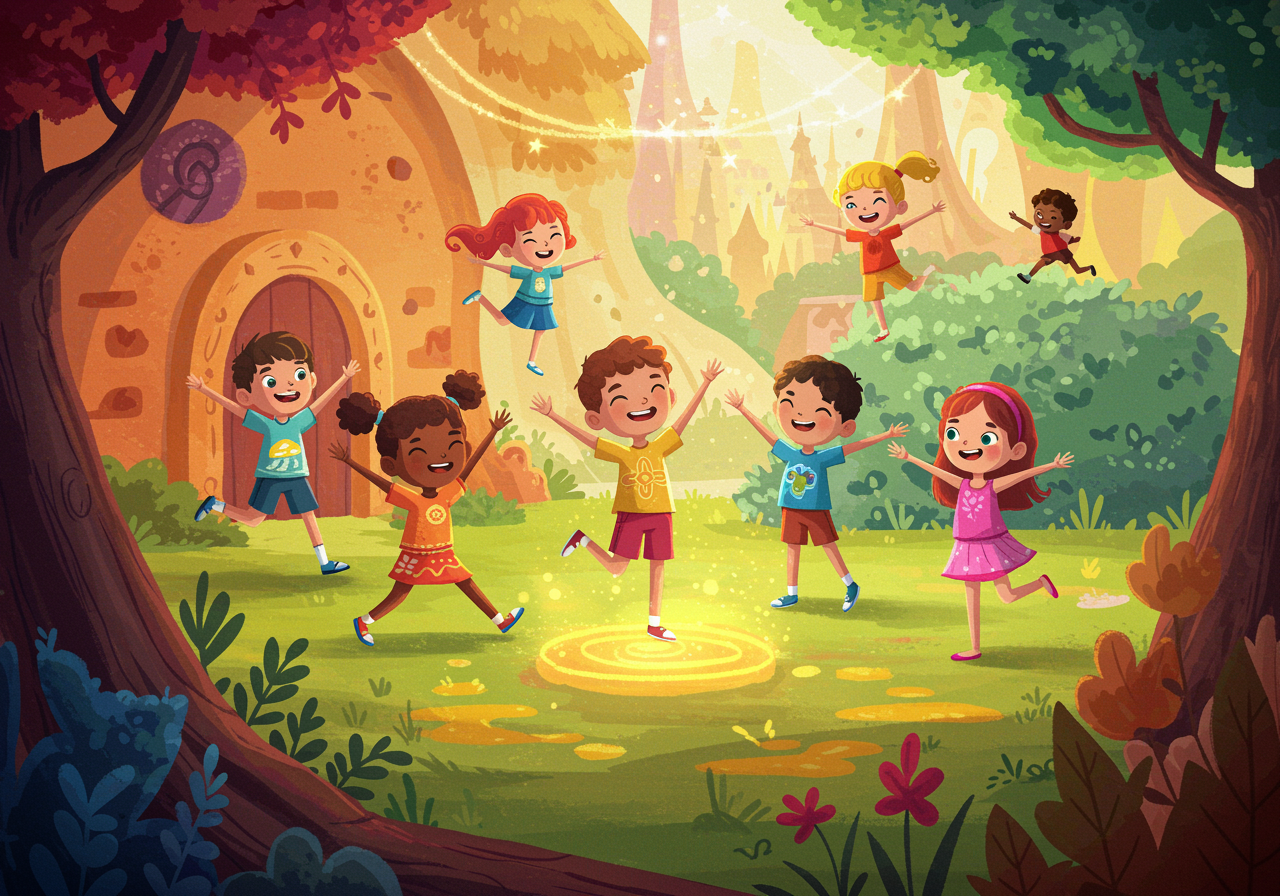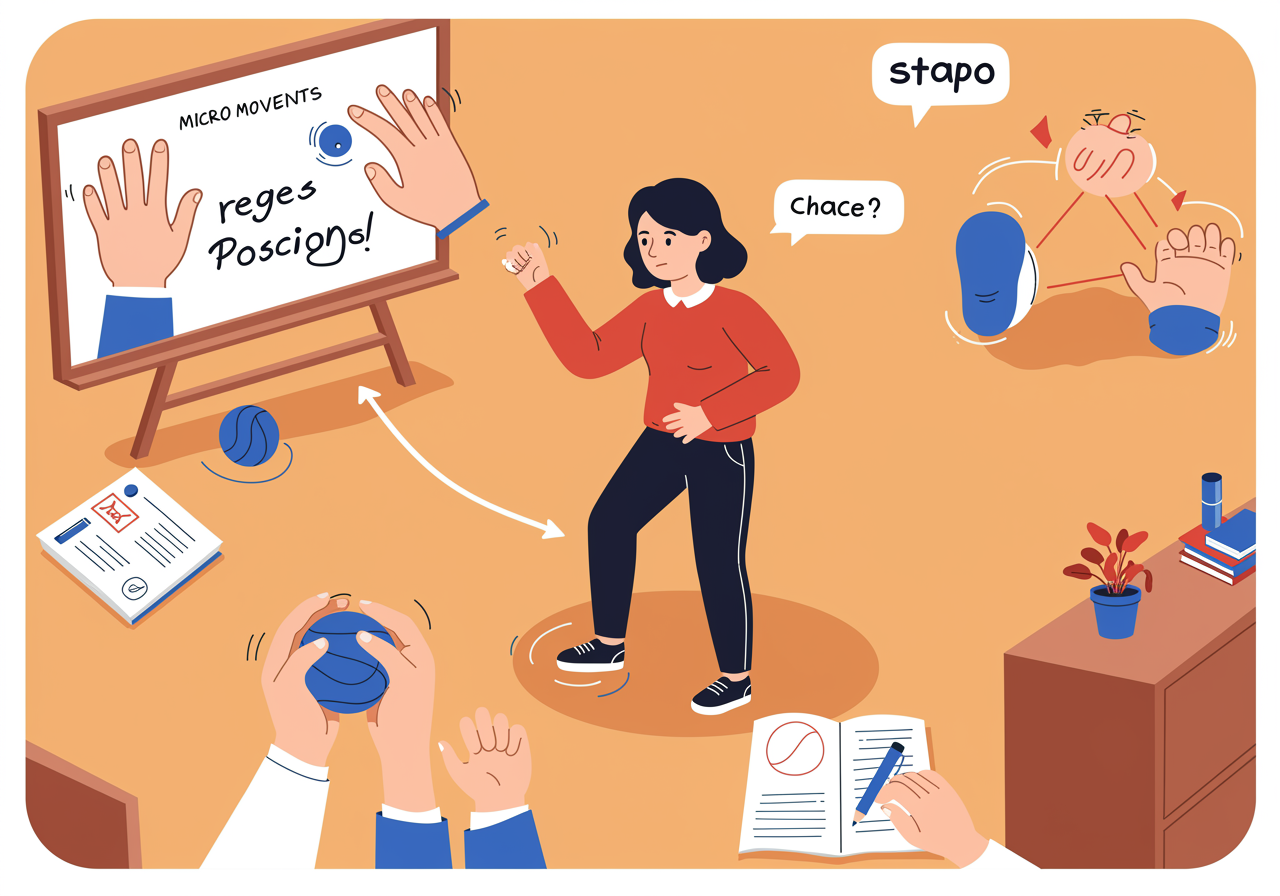Your Body’s Secret Superpowers: How Every Move You Make Changes Everything!
Discover the mind-blowing ways that tiny movements can boost your brain, mood, and more
Get ready to unlock the amazing hidden powers of movement that go way beyond just staying fit!
Overview
Think movement is just about exercise? Think again! Every wiggle, stretch, and step you take is secretly working magic on your brain, mood, and overall health in ways that might totally surprise you. From the fidgeting that helps you focus during boring classes to the walking that sparks your most creative ideas, your body is constantly using movement as a superpower. This isn't just about hitting the gym – it's about discovering how the smallest movements throughout your day can make the biggest difference in how you feel, think, and connect with others.

Understand in 30 Seconds
Get up to speed quickly
- Fidgeting = Focus Fuel: That pen-clicking and leg-bouncing you do? It actually helps your brain stay alert and focused, especially during long lectures or study sessions.
- Walking = Creativity Booster: Taking a walk can increase creative thinking by up to 60% – that's why you get your best ideas in the shower or on walks!
- Dancing = Memory Master: Learning dance moves or even just moving to music creates new brain connections that improve memory and learning in all subjects.
- Micro-Movements = Mega Results: Small movements throughout the day – like stretching, standing, or even deep breathing – add up to huge health benefits over time.
Real Life Scenario
Situations you can relate to
Imagine you're stuck on a tough math problem for 20 minutes, feeling frustrated and brain-dead. Your parent suggests taking a 5-minute walk around the block together. At first, you think it's a waste of time – but something magical happens. Halfway through the walk, the solution suddenly pops into your head! This isn't coincidence – it's science. Walking increases blood flow to your brain and activates the areas responsible for creative problem-solving. Have you ever noticed how your best ideas come when you're moving – in the shower, walking to class, or even just pacing around your room? Your brain loves movement because it literally feeds your neurons with fresh oxygen and nutrients.

Role Play
Spark a conversation with “what if” scenarios
What if you could boost your test scores just by changing how you sit?
- Role play: Try the 'Study Position Challenge' – spend 10 minutes studying while sitting normally, then 10 minutes on a stability ball or standing. Compare how alert and focused you feel in each position.
What if you could improve family conversations just by walking together?
- Role play: Plan a 'Walking Talk' where you discuss the day's events while strolling around the neighborhood. Notice how the conversation flows differently when you're moving side by side.
What if a 2-minute dance party could change your entire mood?
- Role play: When someone feels stressed or grumpy, call for an impromptu family dance session. Put on one favorite song and move however feels good – then compare everyone's energy levels before and after.
FAQs
Frequently asked questions people want to know
Does fidgeting really help with concentration, or is it just distracting?
For many people, especially those with ADHD, fidgeting actually improves focus by giving the brain just enough stimulation to stay alert. Small movements like bouncing a leg or squeezing a stress ball can help maintain attention during long tasks.
How much movement do I actually need to see health benefits?
Even 2-3 minutes of movement every hour can make a difference! You don't need hour-long workouts – small bursts of activity throughout the day add up to significant health improvements.
Why do I feel happier after moving, even if I was tired before?
Movement releases natural 'feel-good' chemicals called endorphins in your brain. It also reduces stress hormones like cortisol, which is why even a short walk can instantly boost your mood.
Examples in the Wild
See how this works day to day
- Stanford University research found that walking increases creative output by an average of 60%, with the effects lasting even after people sit back down. (Stanford University Journal of Experimental Psychology Study, 2014)
- A Mayo Clinic study showed that people who fidget burn up to 350 more calories per day than those who sit completely still. (Mayo Clinic Proceedings, 2016)
- Research from the University of Illinois found that just 20 minutes of walking before taking a test improved students' scores and attention spans. (University of Illinois Neuroscience Research, 2019)
- A Harvard Medical School study discovered that learning dance sequences improved memory performance in older adults by 25% in just 6 months. (Harvard Medical School Memory and Aging Study, 2020)
In Summary
What you should know before you start
- Small movements throughout the day have surprisingly big impacts on brain function, mood, and overall health
- Fidgeting and micro-movements can actually improve focus and burn extra calories
- Walking and light movement boost creativity and problem-solving abilities
- Movement is a natural mood booster that releases feel-good brain chemicals instantly
Pro-tip for Parents
You got this!
If your teen seems resistant to 'exercise' conversations, focus on the immediate brain benefits instead of long-term health. Teens are more motivated by things that help them right now – like better focus for homework, improved mood for social situations, or enhanced creativity for projects. Frame movement as a 'brain hack' rather than a health lecture, and they'll be much more interested in experimenting with it.

Keep an Eye Out For
Find these examples in everyday life
- News stories about 'active workplaces' or standing desks in schools and offices
- Research about video games that incorporate movement and their cognitive benefits
- Stories about athletes or performers who use specific movement routines to improve mental performance
Explore Beyond
Look up these related research topics
- How does sleep position and movement during sleep affect recovery and dreams?
- What's the science behind why certain movements feel good and others don't?
- How do different cultures use movement and dance for health and community building?